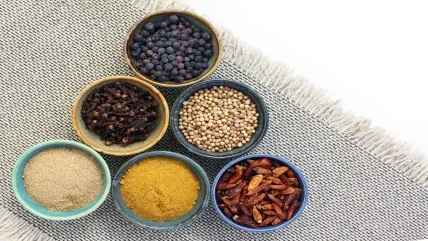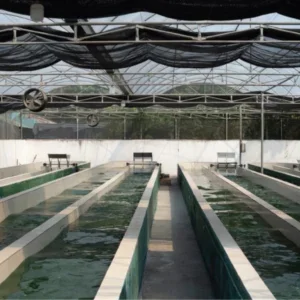
The flavours and fragrances market has witnessed considerable growth in the last few years. That unprecedented acceleration has been driven by growing urbanisation along with a commensurate rise in health consciousness, and an awareness of flavours and fragrances that are widely used in food and beverage markets, daily chemicals for personal care and household products, fine fragrance and beauty care.
However, the flavour and fragrance market is expected to decline in 2020 due to the global economic recession that will seemingly inevitably follow the Covid-19 pandemic.
And yet, it is a market that is expected to witness recovery in 2021, according to research by Lucintel. The analytics company has forecast the segment to reach an estimated $35.7bn by 2025, with a compound annual growth rate of between 2–4% from 2020 to 2025. The major drivers for this, it reported, are increasing amounts of disposable income among the middle class, changing consumer preference and a growing awareness among customers to buy products that contain natural ingredients.
Meanwhile, other key factors predicted to drive the market for flavours, is the changing lifestyle of consumers, an increase in demand for convenience food and the development of the global beverage industry in terms of packaging and safety logistics.
The Covid-19 pandemic is, of course, changing the world as we know it. It has put incredible amounts of pressure on everyone, with physical health, mental health and well-being relentlessly thrust into the spotlight.
Jean Mane, IOFI
As a crucial sector of the global food chain, the flavour industry has made it possible for consumers to have uninterrupted access to food throughout this pandemic. While spending more time at home, consumers are still seeking convenient food products that are both nutritious and delicious. In response, International Organisation of the Flavour Industry (IOFI) members have been ramping up their production.
Tasty response
To get through this unprecedented health crisis, the flavour industry has undertaken a wide range of measures and initiatives to support communities in need, while continuing to ensure the safety of their employees and the security of the global food supply, often pivoting business models to adapt to the new reality. As many of us work from home, flavour facility employees, by necessity, still have to show up daily in factories and on farms to ensure continuity in the global food supply chain. To protect their employees in these challenging conditions, members have been consistently applying best practices on social distancing, providing protective equipment and encouraging remote working wherever possible.
Disinfectants are key in the fight against Covid-19. They are vital to stopping the spread of infection in hospitals, homes and public places such as grocery stores. To meet the increased global demand for hand sanitisers, many IOFI members responded by converting their flavour facilities to supply these essential products, when and where they have been most needed. Tons of disinfectants are now produced globally every week in the facilities of members, the results of which are then donated to hospitals, authorities and local hotspots. In a time where regular business processes cannot come to the rescue, the human-to-human approach is what brings most value. To support communities most affected by the outbreak, IOFI has devoted both time and money to help the most affected communities: food banks, healthcare workers and various organisations, including WHO and other regional organisations involved in the ongoing crisis. These examples are just a few of many from across the globe, where members continue to put aside normal business-to-business processes to help combat the outbreak. Keeping essential ingredients in production is the best way that the flavour industry can help safeguard access to quality nutrition to consumers in every corner of the world.
Meanwhile, the IOFI and International Fragrance Association (IFRA) have together launched a Sustainability Charter. It is a voluntary framework for companies in the flavour and fragrance industries, and represents a collective commitment to making a difference for the planet, for people and for the businesses that the two organisations represent. Nearly 100 flavour and fragrance companies have signed the charter, which seeks to improve sustainability across the two industries.
The charter covers sustainability in every sense, taking a life-cycle approach that is based on the following five focus areas: responsible sourcing, reducing environmental footprint, employee well-being, product safety and transparency and partnerships. According to IFRA and IOFI, the Sustainability Charter complements long-standing sustainable development commitments and initiatives undertaken by many individual companies in the flavour and fragrance sectors.
The framework seeks to help the sector as a whole make further advances by sharing best practice, providing tools and benchmarking progress.
Launching the charter, the president of IOFI Jean Mane said, “The flavour and fragrance industries are rooted in nature – and so, the sustainable use of resources is central to everything we do.
“This charter is an expression of our collective purpose to act responsibly and use our influence throughout the value chain, with suppliers, in our own industries and with customers and downstream users, to drive positive change.”
The IFRA chairman Hans Holger Gliewe chimed in as well with, “The importance of sustainability is growing across all businesses, not least the flavour and fragrance industries.
Gilles Andrier, Givaudan
“Our joint IFRA-IOFI Charter highlights the commitment of our sectors to greener sourcing and production, to employee well-being and to economic sustainability, all of which are now more important than ever.”
Chartist movement
The IFRA-IOFI Sustainability Charter has been in development since 2016, shaped through a wide consultation of member companies and external experts, while simultaneously acknowledging the UN’s Sustainable Development Goals.
It has been designed to be aspirational and inclusive, with clear and achievable goals that allow companies of all sizes to make a contribution to improving the overall sustainability of the fragrance and flavour industries.
One high-profile flavouring company that recently signed up to combat climate change was Givaudan, which reinforced its ambitious commitments to climate action by signing up to the ‘Nature is everyone’s business’ call-to-arms of Business for Nature, a global coalition of influential businesses and forward-thinking organisations.
Gilles Andrier, CEO of Givaudan, stated in September alongside the company’s announcement that, “The ongoing pandemic together with the climate crisis means that coming together to protect nature is more vital than ever. A challenge on this scale requires collaboration across businesses, governments and society, and we’re proud to be part of this powerful call to action.
“We are already taking bold action across our business to show our love for nature in everything we do, as a key goal of our purpose and through our B Corporation ambition [a certification of the social and environmental performance of for profit companies].
“We look forward to continuing to work with other like-minded businesses that are helping to drive change and acting as a force for good in the world.”
It’s further evidence that players in the flavours and fragrances market are transforming the pain and difficulties of the Covid-19 pandemic into a far grander, macro-scale assault on the destruction of climate change. It is hoped this industry resilience will set the tone in the coming years.
$35.7bn
The projected value of the fragrances and flavours market by 2025.
Lucintel





